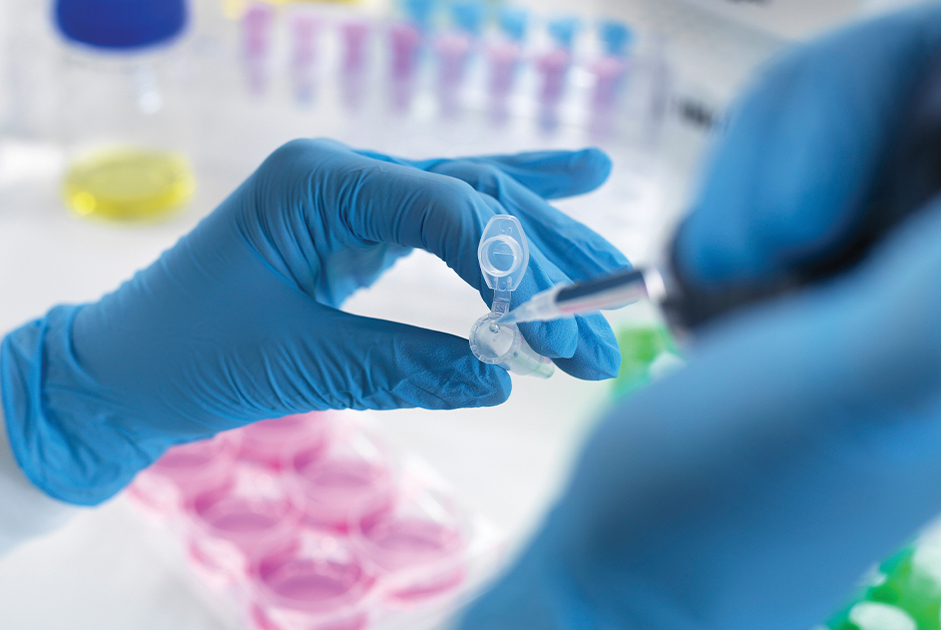I remember a conversation with my grandmother, who shared with me that when she was growing up people didn’t speak about cancer the way they do today. She remembered being a little girl with her mother in the supermarket speaking in hushed tones with someone about a common friend who wasn’t doing well and in nearly a whisper saying “she has cancer.” Since then, our family has experienced my own pediatric cancer diagnosis at five years old, the loss of my great grandmother to lung cancer and my father to esophageal cancer at just forty-nine years old.
The reality is, whether we whisper its name or not, cancer has a way of touching our lives.
February is National Cancer Prevention Month and the perfect time to take a pause to be proactive in you and your family’s prevention measures. While there is no certain way to prevent cancer, according to the American Association of Cancer Research (AACR), “more than 40 percent of all cancers diagnosed and nearly half of all deaths from cancer in the United States can be attributed to preventable causes – things like smoking, excess body weight, physical inactivity, and excessive exposure to the sun.”
#1 Know Your Family History
Sometimes just knowing what risk factors you’re genetically prone to can help you make more informed decisions about your preventative measures and healthcare decisions. 5-10% of all cancers are inherited, according to the American Cancer Society. Have open conversations with older family members when possible asking about biological parents, grandparents and even aunt and uncles. While this information isn’t always accessible based on your family situation, you can also take advantage of things like genetic testing through your local medical offices as well as online ancestry testing that now includes some genetic information. It’s important to take whatever medical history you can gather and always keep your doctor and medical records updated and informed.
#2 Actively Make Healthier Choices
One of the goals of spreading awareness this month is helping people remember that “health is wealth.” We get one body and the way we engage and treat it daily can have positive and negative effects on our overall quality of life and lifespan. Committing to maintaining or working towards a healthy weight and more active lifestyle can create huge momentum in cancer prevention. This includes eating a more plant based diet, decreasing high calorie foods, limiting alcohol and red meat consumption and more. Increasing physical activity even if it’s just 30 minutes a day of walking with your family or a friend. Always avoid tobacco products, tanning beds and harsh sunlight hours without sun protection. Schedule immunizations that help decrease cancer risks such as Hepatitis B and the human papillomavirus (HPV) vaccine.
#3 Advocate for Your Health
Early detection is key when it comes to prognosis of a cancer diagnosis. Oftentimes, small symptoms go ignored due to lack of time to see a doctor or worries about medical bills. Understanding how important early screenings are should help encourage you to prioritize an appointment with your primary care physician if you’re feeling like something is not quite right. Should you feel like you are not getting the treatment or respect your concern deserves, be empowered to speak up for what you need. As a patient you are able to request certain testing and screenings should you feel there is a true need. If you know your family history includes a specific type of cancer and you have concerns, have a discussion with your provider about opportunities for early screenings or testing that may be available. Remember, it’s OK to switch doctors should you ever feel you’re not getting the quality care you need.
#4 Support Cancer Research & Prevention Education
The truth is, cancer isn’t disappearing but organizations spending time and resources to learn more about the disease are paving new roads on how to avoid, treat and combat it. The AACR says that “in the United States, many of the greatest reductions in cancer morbidity and mortality have been achieved through the implementation of effective public education and policy initiatives.” Be active in your state and local government, voting for policies for change that help to support cancer research and advocacy. Voice concerns, volunteer, donate funds or time to initiatives like the American Cancer Society, The Ronald McDonald House, American Association of Cancer Research and more.
#5 Take Things One Step at a Time
Once you know preventive measures can be even the simplest of lifestyle improvements, there can be an overwhelming feeling of wanting to embrace every single one. Don’t overcommit, but instead choose at least one preventive measure you can challenge yourself to embrace and take action on this month.




















